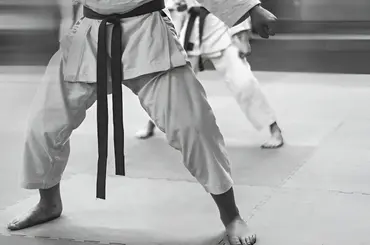How does karate help build discipline in real life?
Let's be real-discipline isn't always exciting. It's waking up early. Practicing when you're tired. Holding back when you want to explode.
Karate? It trains you in all of that. Every class you bow in. Every kata you repeat. Every moment you hold a stance when your legs scream-it all forgesmental steel.
This discipline spills into:
- School or work:Better focus, stronger time management.
- Relationships:Improved patience and emotional control.
- Daily habits:Healthy routines, less procrastination.
Karate teaches that true strength isn't in striking fast-it's in staying committed when no one's watching.
How can I avoid injuries while practicing karate?
Ah, the dreaded injury. It creeps in when ego takes the driver's seat and caution takes a backseat.
To dodge it:
- Warm-up properly- never skip those stretches. Think of your muscles like rubber bands; they need elasticity.
- Focus on formover force - a clean punch matters more than a powerful one.
- Listen to your body- pain is a whisper, don't wait for it to scream.
And don't forget - rest is part of training. You don't build a house by hammering 24/7. Sometimes, you strengthen the foundation by stepping back.

What kind of diet should a karate student follow?
Let's get this straight - you don't need to eat like an Olympic athlete to succeed. But food? It's your fuel. And low fuel = low energy.
Here's the basic breakdown:
- Carbs (like rice, oats, bananas) for energy.
- Protein (chicken, lentils, eggs) for recovery.
- Fats (nuts, seeds, avocados) for long-term stamina.
- Water- seriously, don't underestimate hydration.
Before training? Light carbs. After? Protein to heal. And no, skipping meals won't help you "move lighter." It just makes your brain foggy and your legs jelly-like.
How can I master kata and not just memorize it?
Fantastic inquiry. Kata goes beyond a set of motions. It tells a narrative. One dances. A fight against unseen rivals and a mirror of your soul.
To really become good at it:
Know why you are moving each way. You are blocking here for what? What sort of attack is envisioned?
Practice deliberately; avoid merely running through motions. Feel the pulse, the respiration, the speed.
See the combat; close your eyes and "see" the opponent. That mental movie guides your body toward natural response.
Kata done as right? Poetry in motion is what this is. Kata performed without passion? It is only copying shadows.
Can karate really shape someone's personality?
Absolutely - in fact, that might be its most underrated gift.
Karate trains more than your body - it refines yourcharacter. Students often enter shy, aggressive, anxious, or undisciplined. But over time?
You'll notice:
- Confidence without arrogance.
- Calm under pressure.
- Respect for authority and peers.
- Resilience in the face of failure.
It's like polishing a stone - every punch, every fall, every rise carves away the noise until what remains? is the real you. Stronger, steadier, and full of purpose.
 Mannarkkad , THENKARA , bangalore, Karnataka, IndiaI am a dedicated and highly experienced Karate Coach with a strong foundation in traditional and sports karate, complemented by expertise in Jujitsu, ...
Mannarkkad , THENKARA , bangalore, Karnataka, IndiaI am a dedicated and highly experienced Karate Coach with a strong foundation in traditional and sports karate, complemented by expertise in Jujitsu, ...

